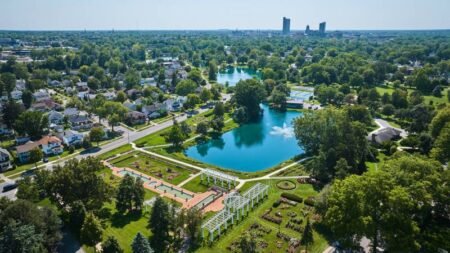Lanzarote, one of Spain’s Canary Islands, is reshaping its image in tourism. The island has launched a bold new campaign to attract a specific kind of visitor—one who values nature, respects the culture, and supports the island’s long-term sustainability goals.
The campaign is led by Lanzarote’s Cabildo (local council) and managed by SPEL-Turismo Lanzarote. It is being developed in partnership with CARSA, a consultancy that specializes in sustainability strategies. This move is a response to growing concerns about mass tourism and its impact on the island’s natural environment and local life.
The campaign aims to raise awareness among tourists before they even arrive. It promotes an image of Lanzarote not just as a destination, but as a shared space that needs protection. It also hopes to educate residents, businesses, and travel operators about their role in building a more sustainable future.
Oswaldo Betancort, president of the Cabildo, made it clear that Lanzarote wants change. He said the island no longer welcomes every type of visitor but prefers those who value its unique landscape. According to him, the island is looking for tourists who will care for and preserve what makes Lanzarote special.
Betancort said, “We are sending a clear message. Lanzarote doesn’t want just any tourist. We want visitors who love the island, who enjoy its nature, and who help protect it.”
He also emphasized that tourism affects everyone and every sector. That’s why the project includes working with local people, businesses, and tourism-related services. He described the effort as a step toward creating a “globally unique model of ethical and responsible tourism.”
Héctor Fernández, CEO of SPEL-Turismo Lanzarote, echoed this view. He explained that the campaign is not only directed at tourists but also at the local population. According to him, both residents and service providers must work together to build a tourism model based on responsibility and long-term thinking.
He added that airlines and tour operators will also be involved. The campaign aims to shift how Lanzarote is presented in global travel markets. It seeks to build a new image of the island—one based on care, respect, and shared responsibility.
Antonio Collado, Director of Innovation at CARSA, said that the campaign goes beyond promotion. It is the beginning of a long-term plan. Working groups will be formed to include voices from various key departments such as Biosphere Reserve, Environment, Geoparks, and Arts and Culture.
The Canary Islands welcomed 15.5 million visitors in 2024, which was a 10% increase from the previous year. While this has been good for tourism revenue, it has also sparked tension among locals. Many have expressed concern that rising tourist numbers are pushing up housing prices and limiting access to affordable homes.
To help control the effects of mass tourism and short-term rentals, Spain has introduced a new national registry. Known as the Single Tourist Rental Registry, it requires property owners in tourist hotspots like Lanzarote and the Balearic Islands to register their rental homes.
This registry applies to full homes, single rooms rented separately, and listings on platforms such as Airbnb and Booking.com. Owners must now receive an official code that confirms the property is legally approved for short-term rental. This step is intended to reduce illegal listings and provide better regulation for tourist accommodations.
Lanzarote’s move to promote responsible tourism is part of a larger trend in the Canary Islands. Local leaders are seeking a balance between economic growth and preserving the culture and environment. The island’s leaders hope that by setting clear expectations, they can welcome fewer but more respectful tourists who will benefit the island without damaging it.







